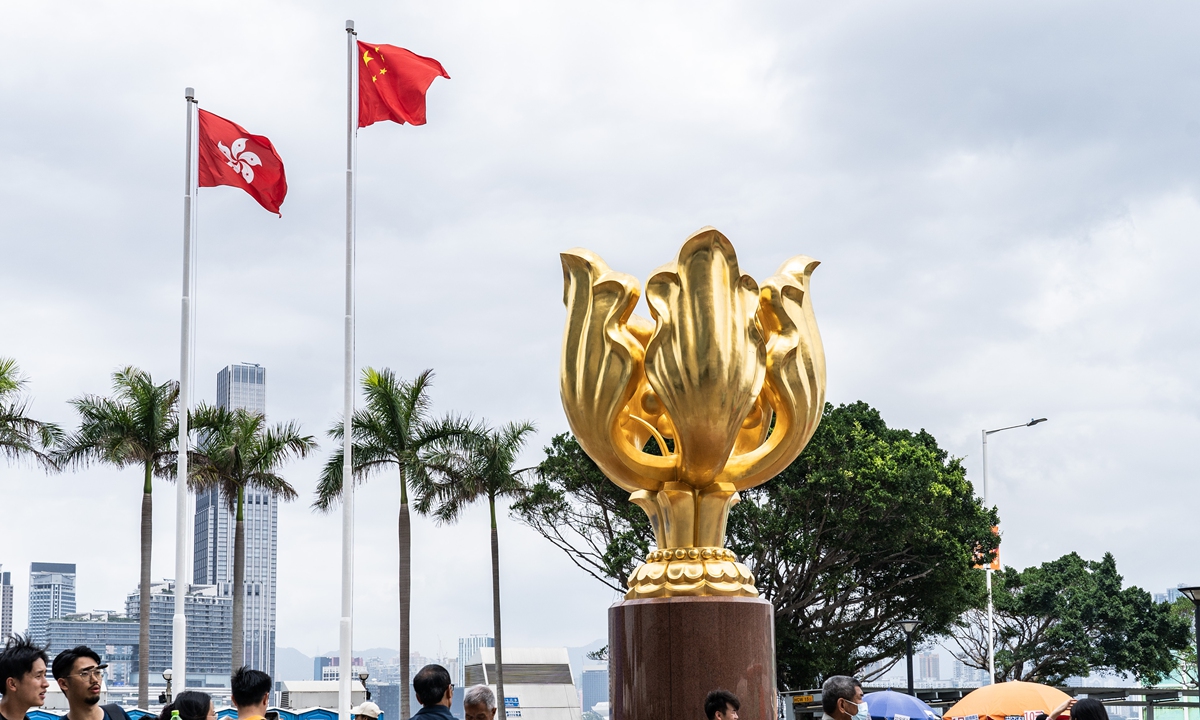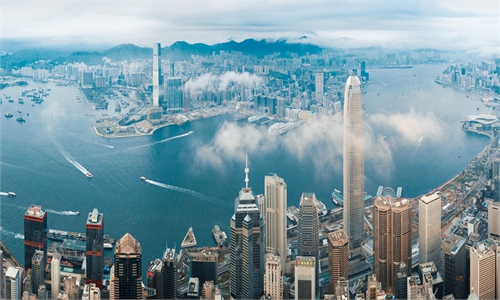China rebukes US and Canada for travel warnings to HK over national security law smears

Hong Kong residents and tourists visit the Golden Bauhinia Square on March 23, 2024. Photo: VCG
The Commissioner's Office of the Chinese Foreign Ministry in the Hong Kong Special Administrative Region (SAR) has expressed firm opposition against smears toward the national security law in Hong Kong and its newly passed Safeguarding National Security Ordinance, after the US and Canada updated travel warnings to the city citing so-called "restrictions" on civil liberties.
US Consulate General in Hong Kong asked US nationals to "exercise increased caution" when traveling to the SAR due to "the arbitrary enforcement of local laws," the consulate general said on Friday.
It noted that since the enactment of the Safeguarding National Security Ordinance on March 23, 2024, the SAR government is expected to "further restrict civil liberties," while warning US nationals there that they may even face arrest and detention if they criticize the Chinese central government or the SAR local authorities.
Canada also issued similar warnings, saying that the new legislation in Hong Kong has broadened the range of national security offenses, which could include activities outside the region, even social media posts. "If you are suspected of endangering national security, you could be detained without charge for up to 16 days and denied access to a legal representative for up to 48 hours," the advisory said.
In a strong rebuttal against such slander, a spokesperson of the Commissioner's Office said Saturday the travel alerts, in complete disregard of the facts, have maliciously tarnished Hong Kong's international reputation in an attempt to obstruct normal business and personnel exchanges.
The Office stressed that Hong Kong's law and ordinance on national security are in line with the rule of law and international practices. With a clear definition of crimes, they fully respect and protect human rights, and safeguard the normal activities of foreign institutions and personnel in the region.
"The law only targets a tiny minority who endanger national security, and ordinary foreign individuals and institutions do not need to worry," the spokesperson said.
"The purpose of the US and Canada is to further suppress Hong Kong's international status by throwing mud at the Article 23 legislation, which was established with full reference to the development of common law and national security laws in other countries, including those in the US and Canada," Tian Feilong, a Hong Kong-Macao-Taiwan affairs expert at Beihang University in Beijing, told the Global Times on Sunday. "This reflects a typical discriminatory double-standards of the West," he said.
What's more, compared to the national security laws in the US and Canada, Hong Kong's legislation strives to be more concise in defining offenses and clear in sentencing. It has improved in terms of human rights protection and upholding the rule of law, setting a more predictable standard, Tian noted.
Observers believe that while the travel alerts may have a short-term impact on people-to-people exchanges, the concerns will gradually fade away as the specific implementation of the legislation unfolds, when foreign businesses in Hong Kong will be able to witness the stronger legal protection of society and the optimized business environment there.

